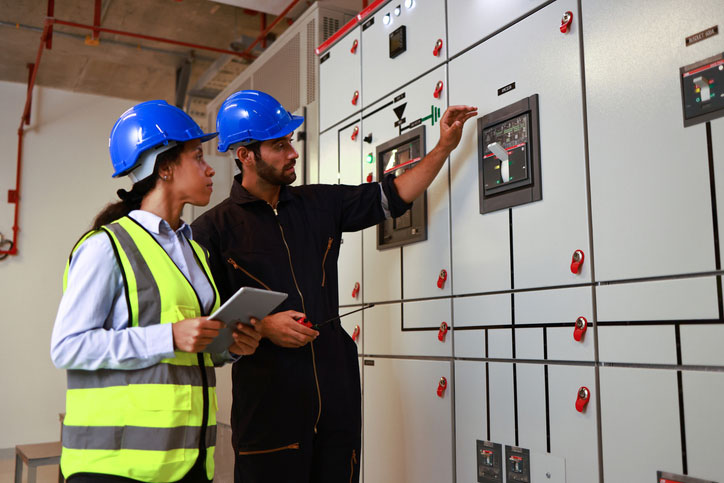WASHINGTON, D.C. — As part of the Biden-Harris Administration’s Investing in America agenda, the U.S. Department of Energy’s (DOE) Office of State and Community Energy Programs (SCEP) announced its first round of selectees through the Energy Auditor Training (EAT) Grant Program. A program funded under the Bipartisan Infrastructure Law (BIL), EAT will distribute up to $27.98 million to 15 State Energy Offices (SEOs) and the American Samoa Territorial Energy Office (TEO) to increase the green building workforce across the country and support the implementation of national energy efficiency improvements sparked by BIL and the Inflation Reduction Act. EAT will ensure that our commercial and residential building energy auditors identify ways to reduce energy usage, promote energy efficiency, and offer energy savings to homes and businesses for our country’s upgrade to a more sustainable future.
“There are over two million American workers in the energy efficiency sector and the demand for their skills continues to grow thanks to the Biden-Harris Investing in America agenda,” said U.S. Secretary of Energy Jennifer M. Granholm. “Today’s funding will expand our clean energy workforce as we move swiftly to deploy energy saving solutions to homes and consumers across the nation.”
Energy audits help identify ways to reduce energy usage, promote energy efficiency, and offer energy savings to homes and businesses. Highlighted in the White House Climate Corps Fact Sheet, EAT is part of a concerted effort at DOE to assist states, territories, and the District of Columbia to invest in energy efficiency and electrification initiatives that will lower energy costs, support a clean energy future, and reduce energy burden. By reducing energy burden and creating quality jobs, the EAT will benefit disadvantaged communities as part of the Justice40 Initiative. The Biden-Harris Administration’s Justice40 Initiative sets a goal that 40% of the overall benefits of certain federal investments in climate, clean energy, and other areas flow to disadvantaged communities that are marginalized by underinvestment and overburdened by pollution.
Commercial Sector Selectees
The Georgia Environmental Finance Authority ($1,998,481) will establish the ‘Southeast Commercial Energy Auditor Collaborative Partnership,’ to equip individuals with the necessary skills and knowledge to obtain commercial building energy auditor certifications. The initiative represents a collaborative partnership between the U.S. Virgin Islands, Kentucky, Mississippi, North Carolina, and Tennessee.
The Hawai’i State Energy Office ($900,000) will establish the ‘Hawai’i Energy Auditor Training (HEAT) Program’ that will leverage ongoing workforce development partnerships and initiatives in Hawai’i. The initiative will close gaps in job access by connecting trainees to career opportunities that promote job quality and economic mobility.
Residential Sector Selectees
The American Samoa Territorial Energy Office ($2,000,000) will establish a residential energy auditor training program to address critical gaps in the local workforce, enhance energy efficiency in residential buildings, and promote economic mobility and job quality, particularly for its most vulnerable and underserved residents.
The Illinois Department of Commerce and Economic Opportunity ($2,000,000) will establish an energy auditor training program in partnership with the Indoor Climate Research and Training division of the Champaign County Regional Planning Commission. The program will create standardized training for multifamily building energy auditing and create career pathways for qualified workers from disadvantaged communities.
The Minnesota Department of Commerce ($1,810,629) will establish the ‘White Earth Tribal and Community College (WETCC) Energy Auditor Training Program’ to support workforce development in northwest Minnesota. The WETCC Energy Auditor Training Program will ensure trainees have the necessary tools to overcome entry barriers and achieve success by offering a range of support services such as mentorship, career counseling, transportation solutions, and language support.
The Tennessee Department of Environment and Conservation Office of Energy Programs ($2,000,000), in partnership with Georgia, Kentucky, North Carolina, South Carolina, and the U.S. Virgin Islands, will establish the ‘Southeast Residential Energy Auditor Collaborative Partnership’ to fill the demand for certified auditors in the historically underserved Southeast and U.S. Virgin Islands.
Other state energy offices selected for negotiations include:
Commercial Sector
- Massachusetts Department of Energy Resources ($2,000,000)
- Nevada Governor’s Office of Energy ($1,317,411)
Residential Sector
- Louisiana State Energy Office ($2,000,000)
- Maine Governor’s Energy Office ($815,000)
- Nevada Governor’s Office of Energy ($1,697,199)
- New Mexico State Energy Office ($2,000,000)
- Oregon Department of Energy ($1,664,600)
- Pennsylvania Department of Environmental Protection ($1,786,391)
- Virginia Department of Energy ($1,999,917)
- Washington State Department of Commerce ($1,999,301)
For more information, visit the Energy Auditor Training Program website.






